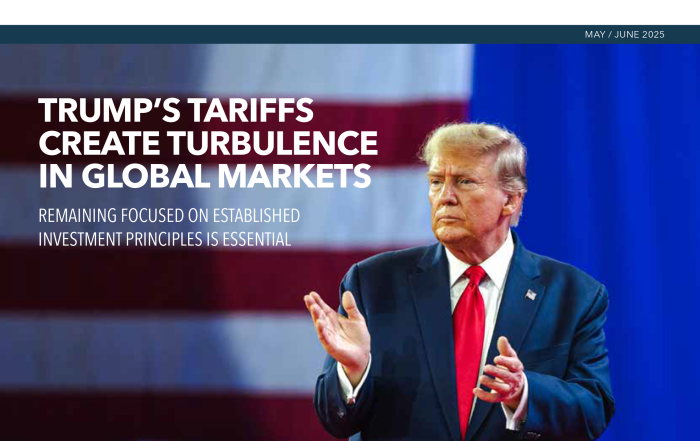Chancellor Jeremy Hunt announced several tax changes from the 2023/4 tax year, including reductions in capital gains and dividend allowances. It’s important to make the most of pensions and ISAs, as well as gifting allowances. With reductions in tax reliefs and allowances looming for 2023/4, now’s a good time to check in with us to ensure you’re taking maximum advantage of them in this tax year.
It’s always a good idea to take advantage of your annual tax reliefs and allowances wherever you can. Not only does it mean that you don’t pay more tax than necessary, it also helps to improve your investment outcomes and makes it easier to achieve your financial goals.
This year, though, it’s more important than ever. In his first Autumn Statement, Chancellor Jeremy Hunt announced reductions to a number of key allowances used by investors, as part of his attempts to shore up the nation’s finances.
The message is use them or lose them.
Here, you can find out what you need to do before the end of the tax year (5th April 2023) and how Grosvenor Wealth Management can help.

What is the Capital Gains Tax allowance?
The Capital Gains Tax (CGT) allowance for the current tax year (2022/23) is £12,300. This means that when you sell investments, you can enjoy gains up to £12,300 before you pay CGT. But following the Chancellor’s announcement in the Autumn Statement, from 6th April 2023, the CGT allowance will be more than halved to £6,000, before it halves again in 2024/25 to just £3,000 a year.
The current rates for CGT are 10% for basic-rate taxpayers and 20% if you pay the higher or additional rate (18% and 28% for residential-property sales).
How do I mitigate the impact of recent tax changes?
There are a number of steps that investors can take to mitigate a CGT bill, including selling off assets over several tax years and taking advantage of their spouse’s allowance. However, with such significant reductions to the allowance looming, investors with assets to sell should check in with us and start planning ahead.
Dividend allowance changes
The Chancellor also set his sights on the dividend allowance. This is the amount you can earn from company dividends before Dividend Tax is charged. Dividend Tax is charged on dividends you earn on company shares, including dividends from money held in collective investments such as funds and investment trusts.
Currently, the dividend allowance is £2,000, but from 2023 it will be halved to £1,000 and then halved again to £500 in 2024/25. The Dividend Tax rate is 39.35% for additional-rate taxpayers, 33.75% for higher-rate taxpayers or 8.75% if you pay basic-rate tax.
Use your allowances
You can shelter your investments from Dividend Tax and CGT by holding them in tax-efficient wrappers, such as a pension or Stocks & Shares ISA. Each year, you can pay up to £20,000 into an ISA or if you can tie it up until age 55 (57 from 2028), you can save into a pension. The pensions allowance is currently £40,000 annually, or 100% of your income if you earn less than that.
ISAs are fantastic, enabling investors to receive tax-free dividends and capital growth. This will be more valuable from April 2023, when the dividend and capital gains tax-free allowances are cut in half. There are already 27 million adult ISAs, with 12 million people contributing to them.
If you’ve already fully funded your ISA or pension, it’s worth talking to us for other ideas. You could consider a pension for a spouse, child or grandchild, or explore ISAs for your family. A Junior ISA can be a tax-effective way of saving a lump sum for the children in your life. Junior ISAs have a lower allowance of £9,000 a year (2022/23).
It’s sensible to think about where you hold your cash savings, too. While Cash ISAs are available, the Personal Savings Allowance lets basic-rate taxpayers earn £1,000 in savings interest tax free and higher-rate taxpayers can earn up to £500 in interest before they need to worry about tax. This means that depending on your circumstances, you may be better off preserving your ISA allowance for stocks and shares.
How much money can be legally efficiently given to a family member as a gift?
If your beneficiaries will likely pay Inheritance Tax (IHT) when you die, you may also want to think about using your gifting allowances. Each year, you can give away £3,000 (or £6,000 between couples) free of inheritance tax. There are also separate allowances for wedding gifts to family members, but they aren’t annual.
Use it or lose it
The majority of allowances work on an annual basis. That means if you don’t use an allowance before 5th April, you lose it. Two notable exceptions are pensions and the IHT gifting allowance. Carry-forward rules enable you to use any unused pension allowances from the past three years, while any unused IHT gifting allowance from the previous year can be used. This means a couple gifting for the first time could legally gift £12,000 tax free to their family.
Talk to us throughout the year – and not just at the end of the tax year – and we can make sure you take advantage of reliefs and allowances wherever you can. In addition to making more of your wealth, this can also have a priceless impact on your financial wellbeing, sparing you the worry around paying too much tax or breaching rules and not paying enough.
Tax-year-end planning shouldn’t be a rush, but with key allowances being reduced over the coming years, it might be worth checking in with us to find out if you can mitigate their impact by planning ahead now.
Talk to us
Looking at all of these different rules and allowances can be complex so why not contact the GWM team for more information. We can help you understand which ones you should be claiming. Please contact us and talk to one of our advisers about how we can help you.
PLEASE NOTE: Grosvenor Wealth Management Ltd is authorised and regulated by the Financial Conduct Authority. The value of investment can go down as well as up and you may not get back the original amount you invested. Tax treatment is dependent on individual circumstances and may be subject to change. Tax planning is not regulated by the Financial Conduct Authority.
Contact Us Form
Please complete this form if you wish to send us your questions or if you would like to request a call back.
We look forward to speaking with you.
Recent GWM articles that may be of interest
Smart Money May / June 2025
Smart Money May / June 2025 Welcome to the May / June 2025 edition of [...]
Smart Money March / April 2025
Smart Money March / April 2025 Welcome to the March / April 2025 edition of [...]
Taking the road to a comfortable retirement
Achieving this vision requires careful planning and preparation We all dream of a comfortable retirement, [...]
Practical financial planning for busy mums
The road to robust financial health, even when you’re juggling the demands of family life [...]
Planning for the future of your wealth
How to integrate emotional, financial and practical dimensions When it comes to your legacy, wealth [...]
Pension funds and the path to net zero
Survey pinpoints several barriers threatening pension funds’ progress Sixty-five per cent of pension funds recently [...]







